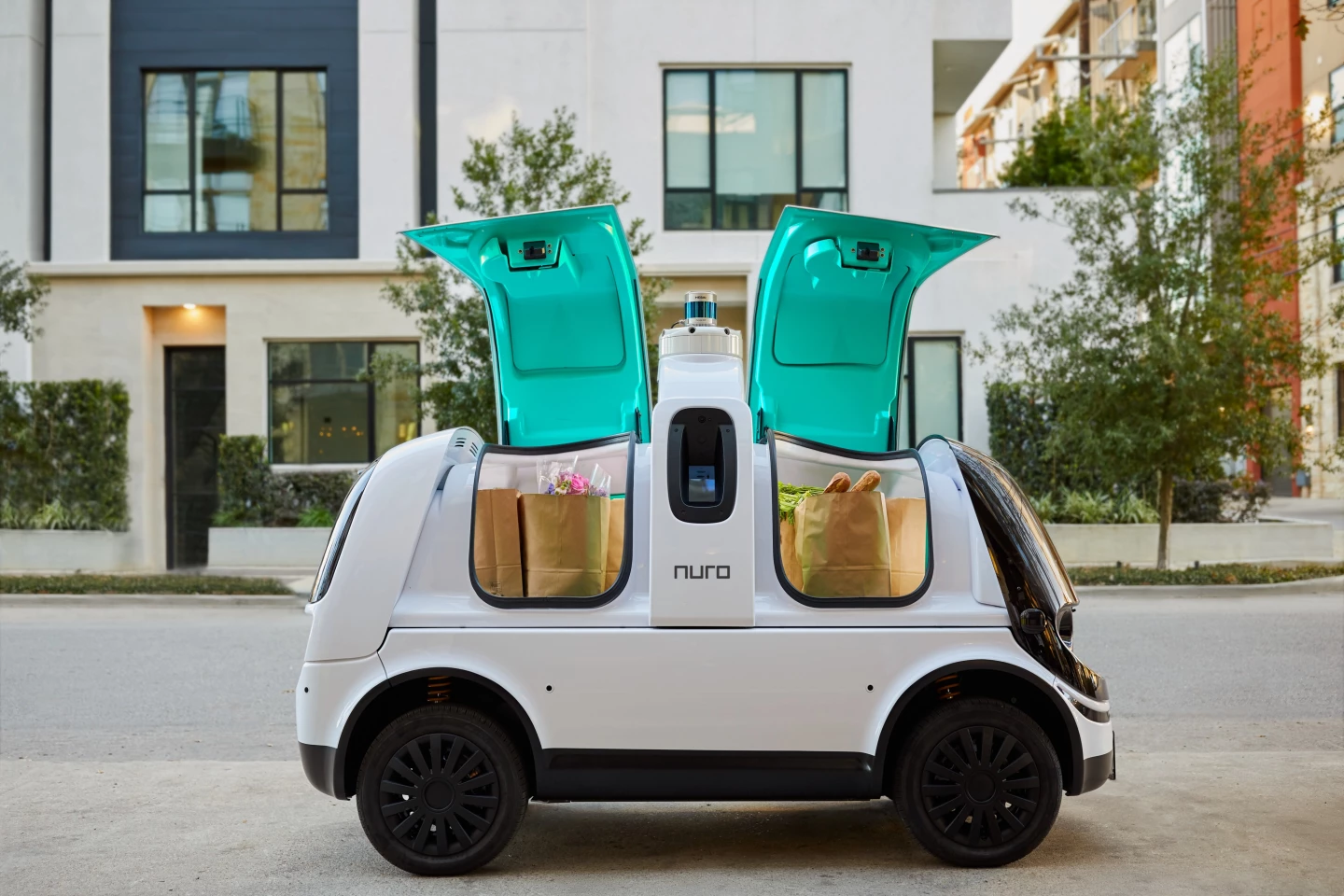In a significant step forward for the autonomous vehicle industry, the US Department of Transport (DOT) has granted its first ever self-driving vehicle exemption to startup Nuro. This approval for a regulatory exemption means that Nuro will be free to push ahead with testing of its second-generation delivery vehicle on public roads, despite having no capacity for human control or carrying passengers.
The US government’s vehicle standards for cars and trucks mean that manufacturers have to design vehicles with drivers and passengers in mind. This means steering wheels, windshields so they can see forward, and mirrors so they can see sideways and backwards. It means, essentially, placing humans front and center in the design process.
In granting Nuro a regulatory exemption to these rules, the first such exemption ever, the US DOT has given the company an official green light to rethink this traditional approach to vehicle design – not that it wasn’t doing that anyway. The company’s all-electric autonomous pod was built to carry groceries and food items, not humans, and has previously been used in tightly controlled pilots together with Walmart, Domino’s and supermarket retailer Kroger.

But now it will be free to continue testing out the latest version on public roads and with scope to deploy them in more cities. The zero-occupant R2 pod features two-thirds more cargo space than the original R1, updated sensor arrays for safer navigation, temperature control to keep food fresh, and nearly double the battery size.
With this exemption in hand, Nuro can push ahead with vehicle features that prioritize the safety of humans outside the pod, rather than anything that happens to be onboard. This means more rounded edges instead of square ones, a shock-absorbing panel in place of a windscreen, and cameras and sensors in place of side mirrors.
Nuro has been in discussion with the US DOT for three years regarding the exemption, and has now been given the tick after demonstrating the safety of its vehicles and submitting detailed explanations of the technology behind them.
The company will now move ahead with testing of R2 on public roads in Houston in the coming weeks. It will work with partners in the city to establish new autonomous delivery services, with hopes of expanding to other cities across the US down the track.
Source: Nuro







